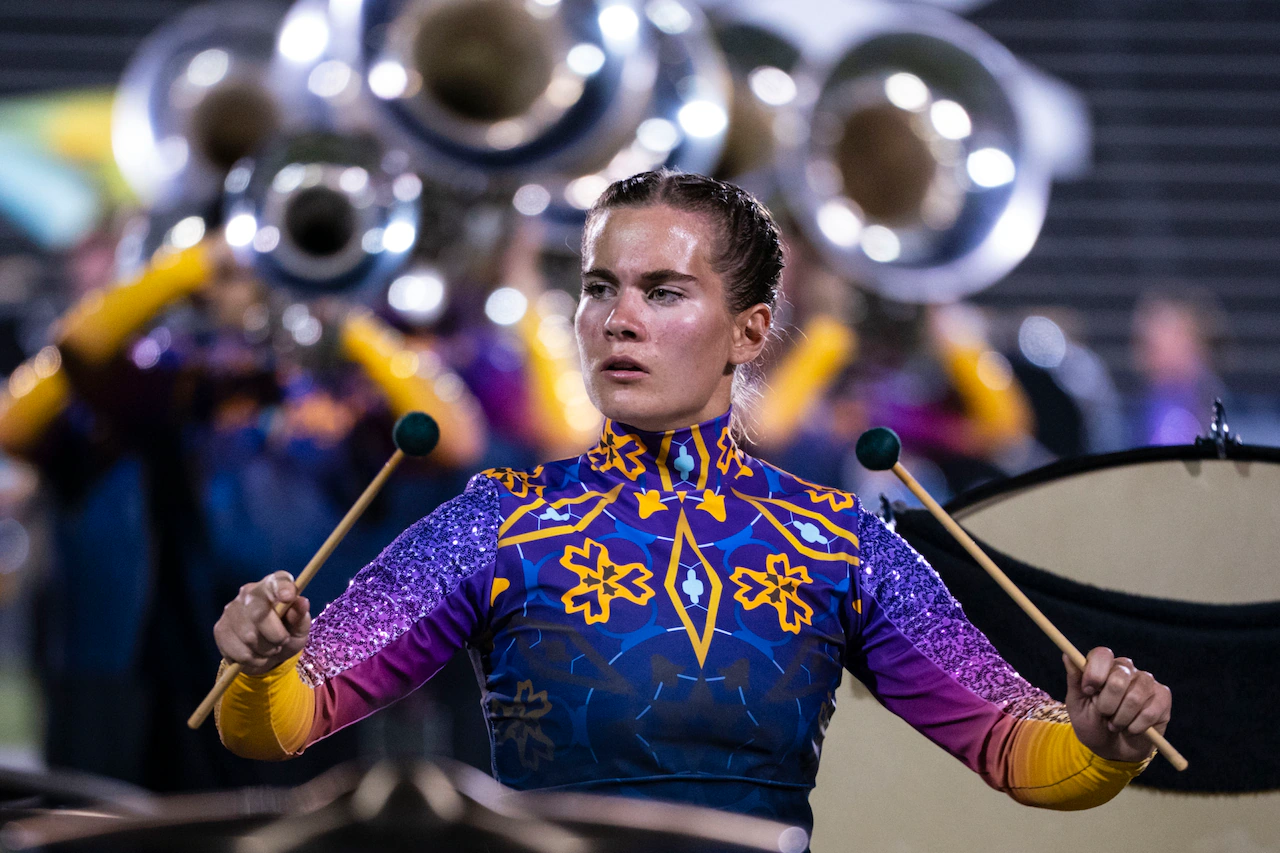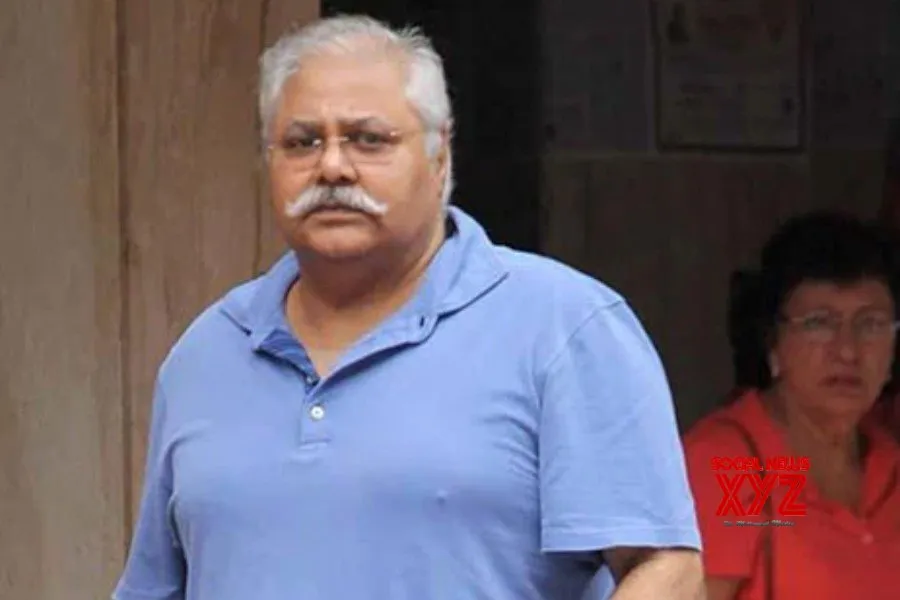Copyright M Live Michigan

Thousands of Michigan high school students spend their summer and fall sweating on hot turf and asphalt, hoping to bring home trophies and make it to the state finals. But there are no footballs in sight. Rather, these students carry heavy tubas and drums or spin around rifles and flags. Nationally, Michigan is known as one of just a handful of states with a rich legacy of marching band excellence, thanks in part to a strong college marching band tradition. When it comes to the high school national championships in Indianapolis each year, Michigan is one of just a handful of states that are expected to have a strong showing. Other states in this mix are Texas, Indiana, Ohio, Oklahoma and Georgia. Several Michigan marching bands have also performed in the Macy’s Thanksgiving Day Parade in New York City and the Tournament of Roses Parade in California. Most people who picture a marching band think of a pep band cheering on their school football team, maybe performing a short halftime show on Friday night. That’s a far cry from what the top competitive bands in Michigan are known for. Instead, the state’s best marching bands have their eyes set on state and national championship titles for their highly produced, themed competition shows. The shows are generally 8-12 minutes long, with multiple pieces of music, props, choreography, costume changes, soloists and complex themes. Reigning Michigan Competing Bands Association Flight I champions Walled Lake marching band’s 2025 show is called “Charmed,” inspired by the ancient art of snake charming. “The (show) explores the hypnotic relationship between the charmer and the serpent,” said Walled Lake Central High School Band Director Grant Prater. “The whole idea is that you don’t really know who holds the power during the show, who is going to win. It’s very multifaceted.” To create these complicated shows that combine theatric elements with marching and musicality, these competitive marching bands spend hundreds of hours learning and rehearsing their shows. Some of the top marching bands in the state like Jenison, Rockford, Walled Lake, Plymouth-Canton and Reeths-Puffer high schools rehearse five or six days a week. According to Prater, Walled Lake’s marching band rehearses two hours after school on Tuesdays, three hours after school on Wednesdays and Thursdays, perform at football games Friday nights, and then get to rehearsal at 9 a.m. on Saturdays for competition days, often not getting home until near midnight. At a minimum, that’s 20 hours of rehearsal per week, not counting band classes during the school day. So why do Michigan marching bands work so hard to achieve excellence? It all began with some musical legends at Michigan’s public universities, including at the University of Michigan, Michigan State University, Central Michigan University, and later, Western Michigan University. “We’re fortunate to have really outstanding universities with William Revelli at U of M and Leonard Falcone at MSU and Norman Dietz at Central Michigan,” said Ted Bazany, who was the Jenison High School band director from 1979-2000 and the Grand Valley State University assistant director of bands until he retired in 2011. “Those three in particular made a huge impact on the concert programs. They all played really well and carried that on to the marching bands, to make sure they sounded really good.” Revelli was the director of bands at the University of Michigan from 1935-1971 and was known for demanding nothing short of perfection from his students. He also required all male music students who played band instruments to participate in the marching band, which he transitioned from military-style formations to more of the modern-day intricate marching drill now used at the competitive level. Michigan also has two well-known fine arts camps -- Blue Lake Fine Arts Camp and Interlochen Arts Camp -- where student musicians can improve their skills. Bazany was a Blue Lake camp band conductor for over 30 years. As Bazany says, “excellence breeds excellence,” and that legacy of great musicians creating top-notch marching bands trickled down over the years to many high schools around the state. “It really ties to the universities, but when I think of Michigan, it’s really in the top 10 in the country for music education schools,” Prater said. “On top of that, since music educators have been around for a long time, the mentorship of directors is being passed down in the programs and great tradition.” By the 1990s, Plymouth-Canton Educational Park’s marching band had solidified itself as a national powerhouse, winning the national championship in 1990, 1991 and 1999. To date, P-CEP’s band is the winningest band in the state of Michigan, having won the state championships 27 times with its highly theatric shows and out-of-the-box concepts. “When it comes to marching band, Plymouth made a conscious decision to be different,” said Mike Wells, P-CEP’s band director. “It was why we went with bright yellow uniforms. In the 90s, Plymouth took some risks with props and synthesizers, and it became a leading organization for marching arts education. People want to be a part of that. There’s rules about prop sizes and things like that at (the national level) because of Plymouth.” Wells said that reputation for over-the-top Broadway style productions on the football field is thanks to an incredibly dedicated group of parents who continue to volunteer their time washing uniforms, feeding students, building props and transporting equipment to each competition. Those parents, known as “the crew,” design and build props, figure out ways to store large instruments and the theatrical elements of each year’s production, and fix parts that break. “There’s never been something that we’ve met that we say is impossible,” Wells said. “Sometimes the reaction is ‘that’s crazy,’ but there’s never a doubt of what we can make work.” This year, P-CEP marching band’s show is titled “As the Woods Fall Dark,” centered around an ominous forest. “The concept is centered around that dark thing. You don’t know what’s in there, but you don’t want to be a part of it,” Wells said. “The music is evil and dark and represents that. We have an amazing flute soloist and then everything becomes darker and darker throughout the show.” Bazany said these big production-style marching band shows with complex themes aren’t going away any time soon. “In today’s world, it’s not just marching,” Bazany said. “It’s also choreography throughout the entire program. The speed from one formation to the next, that’s all part of the show design. Everything is done for a reason.” At competitions, Bazany said judges evaluate bands based on music quality, visuals like marching and choreography, and “general effect,” which is about execution of concept and performance. Having students work together for so long on one show as a group creates a sense of teamwork and camaraderie that Wells said is a once-in-a-lifetime experience. “You get to be a part of this amazing production at a national level,” Wells said. “You’re not going to remember the scores, but you’re going to remember the bus ride there with your friends. The students spend so much time together that they all find their place. “Everyone has a place in the band program.” While marching band seasons are full of competitions and championship trophies are on the line, that Michigan-grown level of music and marching excellence is the true focus of top band directors around the state. “Our big slogan is Walled Lake versus Walled Lake,” Prater said. “You will never hear any name of any other marching band at our rehearsals. We really focus every day on getting better on the individual level and improving as a team every day. “We spend so much time (as a band) and it’s so intricate. At the end the season the students get to do more physically and musically, but they also really grow as human beings. They’ve matured and done all these things in order to have their best performance at the end of the day. It’s really special.” Former P-CEP band director Marc Whitlock, who was a judge at Bands of America Grand National Championships last year, said that individual student growth is really the goal of these highly competitive marching band programs. “We go into this thing called marching band and we talk about this being a great place for kids to be themselves,” Whitlock told MLive. “It’s about using the vehicle of marching band to teach life’s greater lessons. They learn leadership, grit, detail, organization, camaraderie, collaboration, and they take that to their real life afterward.” According to Whitlock, the key to Michigan bands’ success is a combination of excellent band directors and incredibly involved parents who want to see their children get every opportunity possible. That “culture of achievement” provides a value system the band students take with them for the rest of their lives. “All have a high pursuit of artistic excellence,” Whitlock said. “They learn excellence is in all that they do (and) they learn that people matter.” Michigan’s marching band students who qualified for state finals will take the field this weekend at Ford Field in Detroit for the Michigan Competing Bands Association state finals. Only the top 10 bands in each “flight,” determined by school size, get to compete at state finals. Then, from Nov. 13-15, some of those bands will attend Bands of America Grand Nationals at Lucas Oil Stadium in Indianapolis. Going into state finals, below are the rankings of the two largest flight of bands, per the preliminary competition held Saturday, Oct. 25. In total there are five flights in which high school marching bands compete in Michigan. Flight I (the largest): Walled Lake - 91.375 Rockford - 90.500 Plymouth-Canton - 89.850 Novi - 88.400 Lake Orion - 87.375 Grandville - 84.150 Clarkston - 83.400 Hudsonville - 83.100 Huron Valley - 82.300 Grand Blanc - 81.250 Dakota (Macomb) - 80.750 Flight II: Jenison - 92.650 L’Anse Creuse - 89.650 Byron Center - 87.900 Grand Ledge - 85.650 Lakeview (Battle Creek) - 84.550 Flushing - 83.750 Wayne Memorial - 80.550 Portage Northern - 80.300 East Lansing - 80.200 South Lyon East - 77.100 Wyandotte Roosevelt - 75.050 South Lyon - 73.800



